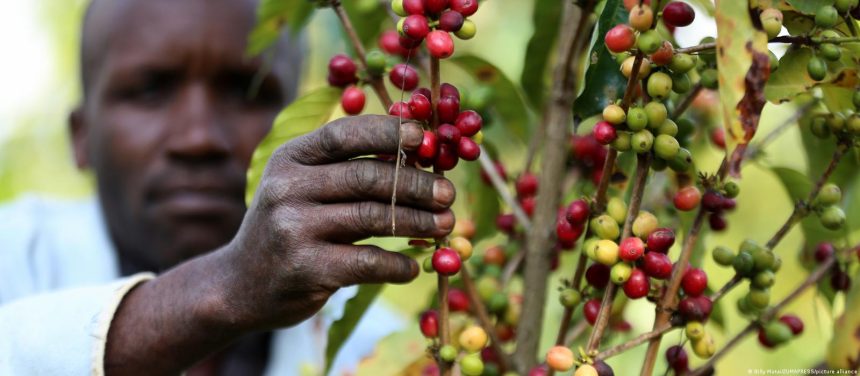Coffee farmers in Nyeri have put the government to task to fulfil its promise for a stabilisation fund as prices at the auction fall.
They want the government to expedite the formation and implementation of the Guaranteed Minimum Return (GMR) on their products which will cushion them from poor prices and cap the price at Sh120 and Sh150 per kilo.
Previously, farmers have received more than Sh100 per kilogramme of coffee they delivered to their respective factories depending on quantity and quality and the markets their millers sold to, however, there are fears that farmers will receive half of that, or less, this year.
According to the prices at the Nairobi Coffee Exchange, a 50kg bag of coffee is selling at (USD180-USD 200) compared to a similar time last year, where the prices were around USD350 and USD600.
Mr John Gitonga, a farmer who delivers his produce to Kamuyu factory said with Deputy President Rigathi Gachagua at the helm of coffee reforms, they expected coffee prices to be among the key things to be addressed.
“We had high hopes because in the previous regime the prices were steadily rising but now … the prices are declining by the day,” he said, adding that the good prices in the past two years saw farmers go back to tending their coffee farms in a magnificent way.
“We have invested all our resources in the farms in the hope we shall continue reaping from our labour but we are discouraged because we do not think we will realize a profit this year,” he said.
The management of the Kamuyu factory has told farmers that they will earn less than Sh70 per kilo of coffee they delivered, down from the Sh90 per kilo they were paid last year.
“That difference only means that the money one had invested in the farms will not be recovered and we are basically operating at a loss,” he said, adding that the farmers were expecting to earn more than Sh100.
His sentiments were echoed by farmers in the Gachata factory in Tetu and Kiawamururu in the Mukurweini constituency.
At the beginning of the year, Mr Gachagua was tasked with overseeing the implementation of the coffee reforms that are meant to streamline the multimillion industry as well as weed out cartels that are at the helm of the sector.
On numerous occasions, the DP has assured farmers that the government will leave no stone unturned until the agriculture sector – coffee, tea, and dairy was free from cartels that continue to oppress and frustrate the farmers, saying the government will deal with them.
“Our government will not sleep until coffee and tea farmers have money in their pockets and we will succeed in implementing the coffee reforms, unlike the previous regime because we have no vested interest in either crop,” he had said.
Due to climate change, farmers have been picking their produce continuously, which has led to increased production in the factories.
However, even with increased kilos for farmers and a poor payout rate, the farmers are worried they will not enjoy any profits as well as attend to their needs, given the high cost of living.
Nyeri Town MP Duncan Maina said although prices at the local market have declined, overseas markets that buy Kenyan coffee have maintained a stable price.
“That is why we are pushing the government to intervene and find out what is causing our coffee to attract such low prices,” he said.
He went on to say that he hoped the supplementary budget would consider setting up a stabilisation fund that will cushion farmers from the effects occasioned by climate change and lower prices for their commodity.



